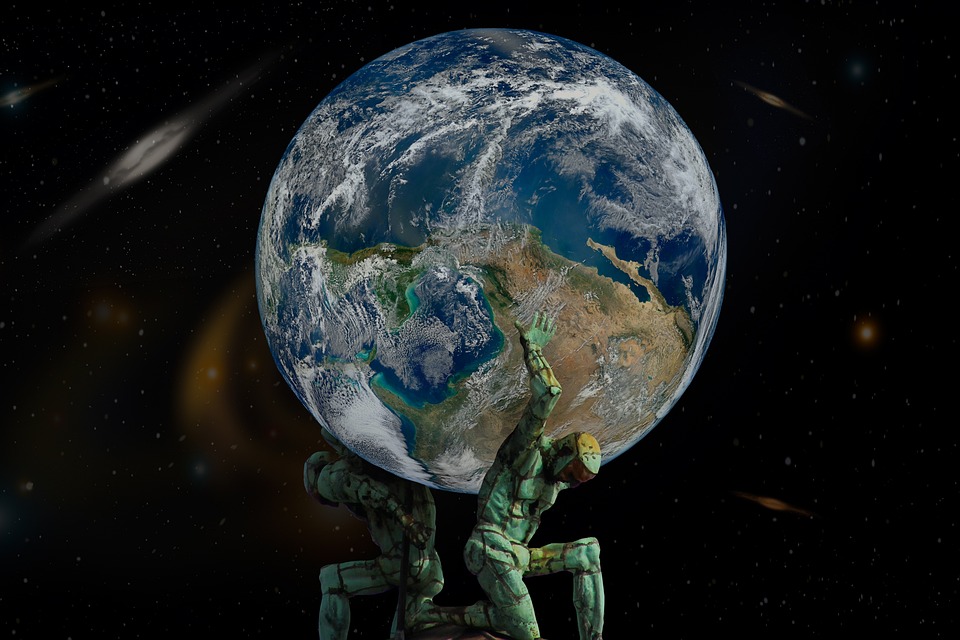How Does Climate Change Affect Biodiversity?
Introduction
Climate change refers to significant alterations in temperature, precipitation, and other atmospheric conditions over extended periods. Its impacts on ecosystems are profound and widespread, affecting biodiversity—the variety of life on Earth, encompassing all living organisms, including plants, animals, fungi, and microorganisms, as well as their interactions within ecosystems.
1. Habitat Loss and Fragmentation
#
A. Shifting Climate Zones
As global temperatures rise, many species are compelled to migrate toward cooler areas to survive. This migration often results in habitat shifts that can lead to fragmentation. For instance, species native to tropical or alpine regions, such as certain plants and insects, are increasingly forced to move to higher elevations or latitudes, resulting in a reduction of their habitable zones[1][3].
#
B. Destruction of Critical Ecosystems
Sensitive ecosystems like coral reefs, polar regions, and wetlands are particularly vulnerable to even minor temperature increases. A notable example is coral bleaching, which occurs when ocean temperatures rise, leading to the death of corals that support diverse marine life. The degradation of these ecosystems significantly threatens the species that depend on them[1][2].
2. Altered Breeding and Migration Patterns
#
A. Early or Delayed Breeding
Changing climatic conditions disrupt breeding cycles for many species. For example, birds that rely on seasonal cues for breeding may find food sources unavailable when their young hatch due to altered timing in the life cycles of insects they depend upon[3][6].
#
B. Disrupted Migration
Migration patterns are also affected by climate change. Species such as salmon face challenges as warming rivers complicate their migration and spawning processes. These disruptions can lead to decreased survival rates for these species[2][3].
3. Increased Threats from Invasive Species and Disease
#
A. Spread of Invasive Species
Warmer climates facilitate the spread of invasive species that often outcompete native species for resources. An example includes bark beetles thriving in warmer temperatures, which have devastated forests across North America[1][3].
#
B. Higher Disease Rates
Increased temperatures can enhance the proliferation of pathogens, making native flora and fauna more susceptible to diseases. For instance, amphibians are facing heightened threats from chytrid fungus, which spreads more readily under changing climatic conditions[1][6].
4. Impact on Food Chains and Ecosystem Balance
#
A. Loss of Keystone Species
The decline of keystone species—organisms crucial for maintaining the structure of an ecosystem—can lead to significant ecological imbalances. For example, a decrease in pollinator populations affects plant reproduction rates, which in turn impacts herbivores that rely on those plants for sustenance[3][4].
#
B. Disrupted Predator-Prey Relationships
Climate change can desynchronize predator-prey interactions, further straining biodiversity. In the Arctic region, polar bears are experiencing food shortages due to melting ice that reduces their hunting grounds for seals[2][4].
5. Climate Change and Extinction Risks
The accelerating effects of climate change pose a substantial threat to biodiversity by reducing habitats and altering ecosystems while increasing competition for dwindling resources. Research indicates that if current warming trends continue, a significant percentage of species may face extinction within this century—potentially doubling the number currently at risk[2][5].
FAQs
– Why does climate change affect biodiversity?
Climate change alters habitats and ecosystems faster than many species can adapt or migrate.
– What happens to species that can’t adapt to climate change?
Species unable to adapt may face extinction due to habitat loss or inability to find suitable living conditions.
– How does habitat loss impact biodiversity?
Habitat loss reduces the available living space for species, leading to declines in population sizes and increased extinction risks.
– Can biodiversity recover from climate change effects?
Recovery is possible but requires significant conservation efforts and time; some ecosystems may not return to their original state.
– Why are polar regions particularly vulnerable?
Polar regions are experiencing rapid warming and habitat loss due to melting ice, affecting species reliant on these environments for survival[2][4].
Conclusion
In summary, climate change disrupts habitats and food chains while threatening the survival of numerous species globally. The loss of biodiversity not only endangers ecosystems but also jeopardizes human well-being by diminishing resources essential for survival. Mitigating climate change is crucial for preserving biodiversity and maintaining the health of ecosystems vital for all life on Earth.

Kyle Whyte is a notable scholar and professor at the University of Michigan, holding positions such as the George Willis Pack Professor in the School for Environment and Sustainability and Professor of Philosophy. Specializing in environmental justice, his work critically examines climate policy and Indigenous peoples’ ethics, emphasizing the nexus between cooperative scientific endeavors and Indigenous justice. As an enrolled Citizen Potawatomi Nation member, he brings a vital perspective to his roles as a U.S. Science Envoy and member of the White House Environmental Justice Advisory Council. His influential research is supported by various prestigious organizations including the National Science Foundation, and disseminated through publications in high-impact journals. Kyle actively contributes to global Indigenous research methodologies and education, with affiliations to numerous institutes and societies dedicated to traditional knowledge and sustainability. Recognized for his academic and community engagement, Kyle has earned multiple awards and served in various visiting professorships. His efforts extend to leadership positions on boards and committees focused on environmental justice nationwide.
